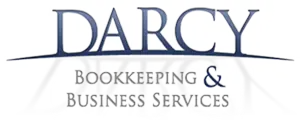


Real estate and legal firms in Australia that hold or receive money on behalf of others are required to open and maintain trust accounts to manage these funds. There are strict rules around the setup and maintenance of trust accounts that can differ in each state and territory. These include, but are not limited to, the naming convention for trust accounts, the banking institutions that can be used to deposit trust account funds, how trust account transactions are processed, reconciliation requirements, reporting requirements, and external audit requirements.
A trust account is a legal arrangement through which funds or assets are held by a third party (the trustee) for the benefit of another party (the beneficiary). The beneficiary may be an individual or a group.
Real estate and legal firms are required to setup and maintain trust accounts to record transactions and hold funds resulting from the purchase or sale of a house, property management, or deceased estate matters on behalf of a client.
Trust accounts must be used exclusively for monies held ‘in trust’ and not include the general operational transactions of the agency or firm. The removal of money from a trust account for reasons other than a lawful purpose is a criminal offence.
Most real estate agencies setup two (2) trust accounts: one for sales and one for rentals.
In legal firms, solicitor trust accounts are used for:
Darcy Bookkeeping & Business Services has years of experience helping real estate and legal firms with their bookkeeping. Contact us on 1300 728 875 or send us a message to discuss your needs.
There are strict rules around setting up and maintaining a trust account in Australia and these rules are legislated and enforced by each state and territory. Different rules apply to different industries, e.g. property trust accounts have different rules to solicitor trust accounts. To ensure you are complying with the current regulations in your region applicable to your industry, consult the websites of the regulatory bodies in your state/territory.
A trust account is not a personal bank account and there are laws that apply to trust accounts to protect a beneficiary’s money. A trustee has certain legal requirements to fulfil and trust accounts operating in Queensland have reporting requirements under Queensland legislation depending on the type of trust account it is.
According to the Queensland Law Society Trust Accounting Guide, solicitors must keep trust account records for seven years after the last entry in the trust record.
A ledger must also be maintained for the individual person from whom money was received and it is used exclusively for trust transactions. All deposits and withdrawals for the individual are recorded in the ledger. Reconciliation statements (bank and cashbook) and Trust Account statements must also be kept.
It is also a requirement that evidence of all ledger entries is kept. These are crucial as they provide the paper trail for auditing. The various trust records which must be kept are:
Supporting documentation such as correspondence, trust account authorities, bills of costs and invoices, trust cashbooks of receipts and cashbooks of payments should also be kept as these form part of the trust accounting records.
In addition to keeping thorough records of all financial activity of a trust account, an annual declaration of monies held in a trust and must also be made.
All of the above are bookkeeping requirements. There are also auditing requirements. The Trust Accounts Act 1973 (Queensland) requires accountants to appoint an independent auditor to check everything has been done correctly.
In order to comply with legal trust accounting in Queensland (Trust Accounts Act 1973 and Trust Accounts Regulation 1999), your solicitor must have their trust accounts independently audited within two months after 31 March each year. The auditor is required to check details including:
Real estate trust accounts in New South Wales are regulated by NSW Fair Trading. At the time of writing the below rules are in place. Consult the NSW Fair Trading website before setting up your trust account to check these rules are still current.
In NSW, the rules around trust accounts in legal firms are legislated by the Legal Profession Uniform Law (NSW) scheme, a summary of which can be found in the Legal Accounting Handbook published by the NSW Law Society.
A general trust account must be operated by the principal of a law practice who is authorised to receive trust money. Depending on the corporate structure of the practice, this can be a sole practitioner, a partner of the practice (if operating in a partnership), or a legal practitioner director (if operating in an incorporated legal practice).
In the absence of the principal, other persons may be authorised to operate the general trust account, provided they are authorised by the law practice. For example, an employed legal practitioner, an Australian legal practitioner with an unrestricted practising certificate, or two or more employees jointly of the law practice.
Darcy Bookkeeping & Business Services has years of experience helping real estate and legal firms with their bookkeeping. Contact us on 1300 728 875 or send us a message to discuss your needs.
Related articles:
